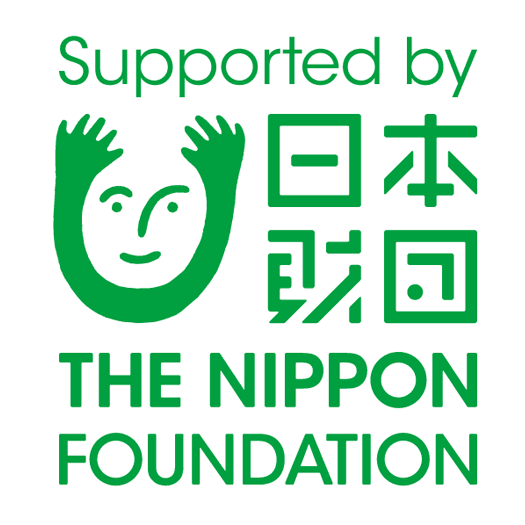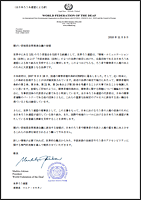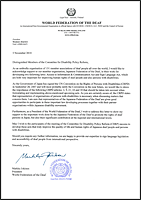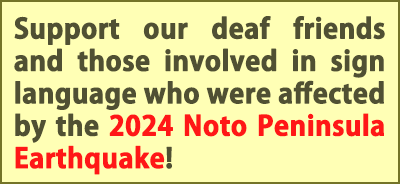Interpreter (International Sign version)
ISHIBASHI Daigo, President, Japanese Federation of the Deaf
(Japanese Sign Language version)
In Japan, sign language was once called te-mane, literally translated as “hand imitation.” This term originated from saru-mane, or “monkey imitation,” a derogatory phrase used to describe an awkward imitation. Sign language was not considered a proper language. It was looked down upon as an inferior form of communication. Our ancestors could not use sign language publicly. They would sign secretly, only in private. Deaf schools, which they attended, forbade students from using signs. If spotted, teachers would hit them as punishment. That used to be the norm.
Now, a new law, the “Act on Promotion of Measures Concerning Sign Language”, has been unanimously approved and enacted without a single opposition. As we witnessed this historic moment, we were overwhelmed with emotion, thinking of our predecessors. They have worked hard to protect sign language and to have it recognized as a language. They have dedicated themselves to raising awareness and promoting their language.





